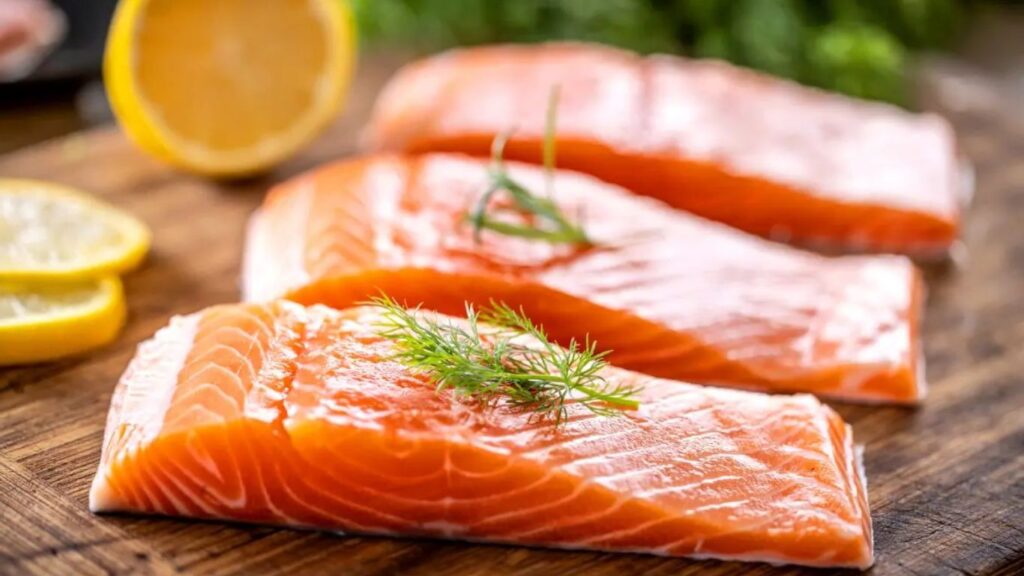Vitamin B-12 is essential for nerve health, red blood cell formation, and DNA synthesis. A deficiency can lead to serious health issues such as anemia, neurological disorders, and cognitive impairments. For those unable to consume traditional sources like meat and dairy, fish emerges as a superb alternative, rich in Vitamin B-12. It not only caters to dietary restrictions but also offers additional nutrients like omega-3 fatty acids. In this blog, we will explore five fish that are particularly high in Vitamin B-12: sardines, salmon, mackerel, tuna, and trout. Each of these fish provides a unique flavor and set of nutritional benefits, making them ideal for enhancing your diet and ensuring you receive an ample amount of this crucial vitamin. Stay tuned to discover how these tasty options can help maintain your health and vitality.
5 Fish That Are High in Vitamin B-12
1. Sardines

Sardines are a powerhouse of nutrition, notably rich in Vitamin B-12, which is essential for the nervous system and red blood cell production. Just one serving of sardines provides a significant amount of the recommended daily intake of Vitamin B-12, making them an excellent choice for maintaining adequate levels. Beyond B-12, sardines are loaded with omega-3 fatty acids, which promote heart health by reducing inflammation and lowering blood pressure.
Including sardines into your diet is surprisingly versatile. They can be enjoyed straight from the can or used to enhance the flavor and nutritional profile of various dishes. Toss them into a fresh salad for a protein boost or stir into a pasta sauce for a Mediterranean twist. Their robust flavor pairs well with bold ingredients like olives and capers, offering delicious ways to reap the multitude of health benefits they offer.
2. Salmon

Salmon is heralded as a superfood, largely due to its impressive content of Vitamin B-12, crucial for nerve health and energy production. This fatty fish not only supports brain function, enhancing memory and focus, but also plays a significant role in maintaining cardiovascular health by reducing inflammation and improving blood lipid profiles. To fully benefit from salmon’s nutritional bounty, grilling or baking it is recommended over frying to preserve its Omega-3 fatty acids and Vitamin B-12. Grilled salmon with a sprinkle of herbs and lemon can be a delightful, heart-healthy dish, while baking it in foil with vegetables offers a complete, nutrient-rich meal. These cooking methods enhance the natural flavors of salmon without adding excess calories, making it a perfect staple for those looking to boost their health in a delicious way.
3. Mackerel

Mackerel stands out as a top source of Vitamin B-12, an essential nutrient that supports nerve function and red blood cell formation. This oily fish not only helps counteract deficiency but also enhances overall health with its high omega-3 fatty acid content, known for reducing inflammation and improving cardiovascular health.
When choosing mackerel, opt for fresh or frozen varieties from sustainable sources to ensure the best quality and environmental responsibility. To preserve its rich nutritional profile, cooking mackerel should be done gently. Grilling or baking mackerel whole with a splash of olive oil and a sprinkle of herbs not only maintains its omega-3 and Vitamin B-12 integrity but also enhances its natural flavors. Incorporating mackerel into your diet through simple preparation methods ensures you gain the maximum health benefits this nutritious fish has to offer.
4. Tuna

Tuna is renowned not only for its robust flavor but also for its significant nutritional benefits, including a high content of Vitamin B-12, which is essential for neurological function and blood formation. A single serving can provide a substantial portion of the daily recommended intake of this crucial nutrient.
The versatility of tuna makes it a favorite across various cuisines. It can be enjoyed in simple sandwiches, mixed into salads, or featured in gourmet sushi and sashimi, making it easy to incorporate into any meal for a boost of Vitamin B-12.
When choosing tuna, it’s important to consider sustainability to help preserve ocean ecosystems. Opt for brands that are certified by reputable organizations like the Marine Stewardship Council (MSC) or those labeled as pole and line caught, which are more environmentally friendly fishing methods. Making informed choices helps support the health of our oceans while enjoying the nutritional benefits of tuna.
5. Trout

Trout is an excellent source of Vitamin B-12, an essential nutrient that plays a crucial role in maintaining optimal nerve function and the production of DNA and red blood cells. This freshwater fish is not only rich in B-12 but also packed with omega-3 fatty acids, which are important for cardiovascular health and reducing inflammation. Incorporating trout into your diet can help enhance energy levels and support efficient metabolic processes, ensuring your body efficiently converts food into energy.
For those looking to add trout to their meals, there are several simple yet delicious recipes to consider. Baking trout with a sprinkle of herbs, lemon, and olive oil is a fuss-free method that preserves its delicate flavor and nutrients. Alternatively, grilling trout wrapped in foil can infuse it with smoky flavors, perfect for a healthy, satisfying dinner. These easy preparations make trout a practical choice for nutritious everyday cooking.
Conclusion
Incorporating these five fish—sardines, salmon, mackerel, tuna, and trout—into your diet is an excellent way to boost your Vitamin B-12 intake naturally. Each fish offers unique flavors and health benefits, making it easy to enjoy a varied and nutritious diet. By choosing these Vitamin B-12 rich fish, you not only support your own health, particularly in maintaining energy levels and cognitive function, but also embrace a heart-healthy lifestyle. Explore these delicious options and discover the joy of cooking with fish that not only taste great but also provide essential nutrients for your overall well-being.
Also Read: Vitamin B-12: Its Role and Signs of Deficiency
